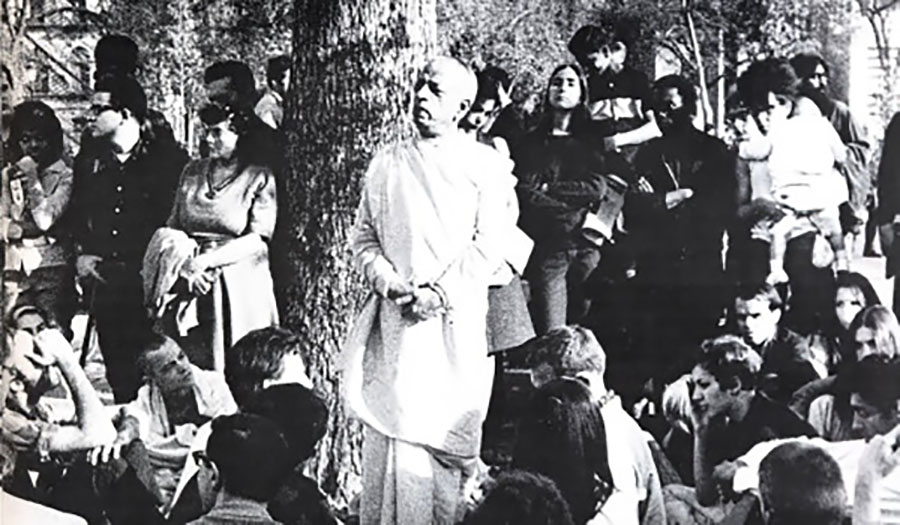ISKCON 50 Meditations: January 20, 2016
By Satsvarupa dasa Goswami | Jan 20, 2016

Do It For Him
It is reassuring to take stock of the fact that we follow Prabhupada in almost everything we do. Often we feel bereft of love for Prabhupada, and we think that we are distant from him. However, if you take inventory, you will see that you are always doing what he wanted you to do.
I do not wear sannyasi clothes because it is my destiny to be a Vaisnava monk; I do it because he introduced it. When I think like this, it gives me assurance that I am completely immersed in Prabhupada consciousness. Even me, a laggard who does not fulfill front-line duties, who fails in many ways to cooperate with devotees – even I am following Prabhupada in general, and in the particulars, with devotion.
Chant your rounds, read his books, do your preaching service, whatever it may be; do things the way he wanted them done. With the instinct of a well-trained person, you act the way Prabhupada taught you. To give a crude example, consider the way a jet pilot moves in the cockpit. He does not expressly think, “Now I am going to pull this switch and that lever to make the plane take off and veer to the left.” He does not have to think so specifically about what he is doing because he has experience. We also have experience and should be guided by Prabhupada’s vani. Whatever comes up in our lives, we simply act according to Prabhupada’s instructions.
If someone asks us, we may verbalize the source of the instruction. Usually, we do not have to verbalize it – you see something and you do it the way Prabhupada did it, because you see the wisdom of his ways.
You use the tongue scraper the way he does, you sit on a toilet crouched with the soles of the feet on the seat like an Oriental, not the way the Westerners do. You eat food only that is offered to Krishna. In order to offer the food, you say prayers to Srila Prabhupada three times and ask him to accept it with devotion, so that the food can be offered to the Deity. You read the Srimad-Bhagavatam. Whatever you do, you are always thinking, “How is this service to Srila Prabhupada?” If it is something he did not explicitly teach, how can it be accepted as an innovative form within the mainstream of Prabhupada teachings? If there is anything we do that is not given by him, we must deliberate whether it is acceptable. By taking inventory of our actions, we want to conclude that we are doing everything for him.















